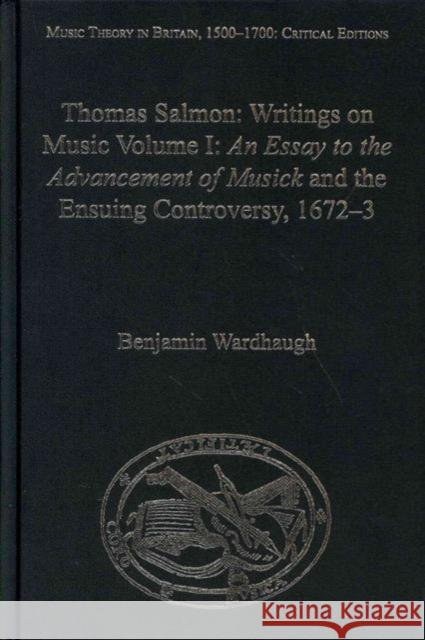Thomas Salmon: Writings on Music: Two Volume Set » książka
Thomas Salmon: Writings on Music: Two Volume Set
ISBN-13: 9781409465034 / Angielski / Twarda / 2013 / 492 str.
Thomas Salmon (1647-1706) is remembered today for the fury with which Matthew Locke greeted his first foray into musical writing, the Essay to the Advancement of Musick (1672), and the near-farcical level to which the subsequent pamphlet dispute quickly descended. Salmon proposed a radical reform of musical notation, involving a new set of clefs which he claimed, and Locke denied, would make learning and performing music much easier (these writings are the subject of Volume I). The incident has tended to be passed over rather briefly in the scholarly literature, but beneath the unedifying invective employed by Salmon, Locke and their supporters, serious and novel statements were being made about what constituted musical knowledge and what was the proper way to acquire it. Later in his life Salmon devoted his attention to an exploration of the possible reform of musical pitch. He made or renewed contact with instrument-makers and performers in London, with the mathematician John Wallis, with Isaac Newton and with the Royal Society of London through its Secretary Hans Sloane. A series of manuscript treatises and a published Proposal to Perform Musick, in Perfect and Mathematical Proportions (1688) paved the way for an appearance by Salmon at the Royal Society in 1705, when he provided a demonstration performance by professional musicians using instruments specially modified to his designs (these writings are the subject of Volume II). This created an explicit overlap between the spaces of musical performance and of experimental performance, as well as raising questions about the meaning and the source of musical knowledge similar to those raised in his work on notation. In this two-volume set, Benjamin Wardhaugh presents the first published scholarly edition of Salmon's writings, previously available only in microfilm and online facsimiles.











